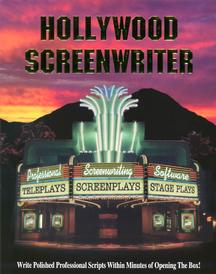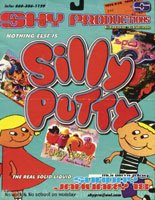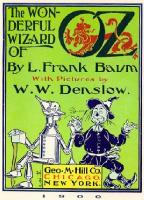We’ve all read them: screenplays written as dramas, but the stakes aren’t real or the conflicts are so flimsy that they aren’t credible. If there are, according to Georges Polti, only thirty six dramatic situations to choose from, shouldn’t we be able to just pick one and write it knowing that it will work? Why then are so many dramas crammed full of conflicts that don’t work or leave the reader apathetic?
If drama, in its most simplistic definition, is conflict, then characteristics of drama will be as variable as those components that formulate conflict. Sources of conflict are made up of opposing goals, views, forces, and desires. The sources of drama will change as those same goals, views, forces and desires respond to our changing world. Time moves forward. Sources of conflict move with it.
How is that possible if there are only 36 dramatic situations and they never change?
Bonnie and Clyde, Butch Cassidy and the Sundance Kid, The Fugitive and Les Miserables all fall into the category of pursuit. A fugitive is being pursued for some kind of offense. The dramatic situation is the same in all four, but the sources of conflict in each one are different. Bonnie didn’t have to ride a horse over scorching desert and Butch didn’t have newspapers reporting his every move. Jean Valjean hid from justice for over 20 years but Richard Kimball lived in an age of instant information. Four very different films. One dramatic situation.
What does this mean to me, as the writer developing a drama? It means that not only must a I intelligently convey the drama, but I must also portray the conflicts (1) within the bounds of logic for the period I’m writing and (2) within the context of the reality I’ve created in my story.
Does this mean that a conflict in 1940 won’t work in 2005? No, but if conflict is a car metaphor and your protagonist is driving a shiny new 1940 Plymouth coup still sporting a $645 window sticker, he would never pass a Ford Mustang on the highway. Mustangs came out officially in 1965 (although I happen to own one of the 1964 1/2's). In the same respect, a pregnant teenager in high school doesn’t experience the same sources of conflict in 1950 that she would today. The conflict is there, but the shock value, attitudes about teenage pregnancy, education resources and her alternatives have changed. As a fashion metaphor, your conflict is no longer a poodle skirt. It’s a belly ring.
Generational conflicts that existed 50 years ago are still around. Take Rebel Without a Cause, for example. While the film was made in 1952, the conflicts between Jim and his parents, the teens with each other, and the conformity of society being forced upon them are all conflicts that exist for young people today. Change their clothes, stick them in modern cars and get rid of a few cheesy slang words and portions of that film could be re-shot word for word in 2005. They may argue over Internet privileges instead of telephone privileges, but hair, clothing, language, curfew and choice of friends are all pretty much unchanged sources of conflict with teenagers.
To the contrary, when Imitation of Life was made in 1959, the sources of conflict had to be adjusted to fit attitudes about race and changes in the roles of black Americans that had taken place since the original adaptation of Fannie Hurt’s novel in 1934. The black daughter still longs to be white but the modernized story had to base her desires on the segregation issues valid in 1959, not 1934. The conflict was the same, but the source of the conflict changed. Were the story to be remade in 2005, the daughter not wanting to black would be a harder sell altogether since her motivation for wanting to be white in 1934 was that blacks were treated as subhuman and in 1959 that race and affluence were conjoined. Race issues still exist in 2005, but they’ve increased, decreased, branched off and mutated. A 2005 remake of Imitation of Life would need (1) a differently defined source of conflict (2) a different conflict altogether or (3) a different reality (or lack of it). Race conflicts have regrettably withstood time, but the sources of those conflicts have changed. The daughter may still want to be white in 2005, but maybe it’s to get into a particular college or profession where white Americans have an advantage over black Americans.
Last year, I read a screenplay that I would consider a modern day version of the 1957 film Twelve Angry Men. With our current preoccupation with courtroom drama and crime shows, I thought this was a clever premise for a low budget indy film. But the 2005 story didn’t work using the same basic sources of conflict that the 1957 film used. The primary conflict of one juror holding out for acquittal against the other eleven worked but the conflicts between the individual jurors lacked credibility. Instead of twelve white men on a jury whose bigotries are based on age, education, and social class, a 2005 story would need a more diverse jury where gender, race and probably religion play a role in the conflicts.
In the 1937 civil war era film Jezebel, the female protagonist and her fiancé have conflicts in their relationship when she defies acceptable behavior of the time. She wears a red dress to a party instead of white and shamelessly enters a bank where all respectable ladies know that women are not permitted. We would assume this conflict wouldn’t work in 2005. But defying acceptable behavior is a timeless conflict. Only the sources have changed. We could write the protagonist walking into a men’s restroom because the ladies’ room line was too long and achieve
the same effect. Same conflict. Different source.
I read a short story recently where an older sister was trying to protect her little sister from Nazis. The author was insulted that I said the conflict was weak. “How would you feel if you were protecting your little sister from Nazis?” she demanded. In her story, everyone was protecting somebody from a horrible fate so the protagonist’s conflict blended with everyone else’s. This story was the equivalent of 500,000 salmon swimming upstream. Their conflicts are identical. They’re all swimming upstream and they’re all trying to get to the same place. Which fish am I supposed to care about and why? Point him out to me.
Dramas encompass everything: wars, sports, show business, literature, economy, politics, natural disasters, mental illness, social problems, disaffected youth, biographies, race, societal conditions, current events, law enforcement, technology, health, history and science. It’s only logical that as time progresses, new sources of conflict will be born while others fade into extinction. That doesn't mean the dramatic situations change, only the sources of conflict. Good drama requires credible conflict. Credible conflict requires legitimate sources of that conflict.
If sources of conflict change as mankind progresses. The key for us, as writers of drama, is knowing our Plymouth coups from our Ford Mustangs and our poodle skirts from our belly rings.























